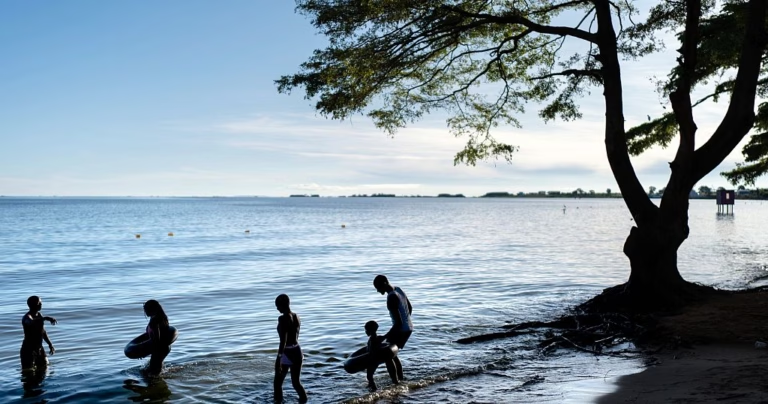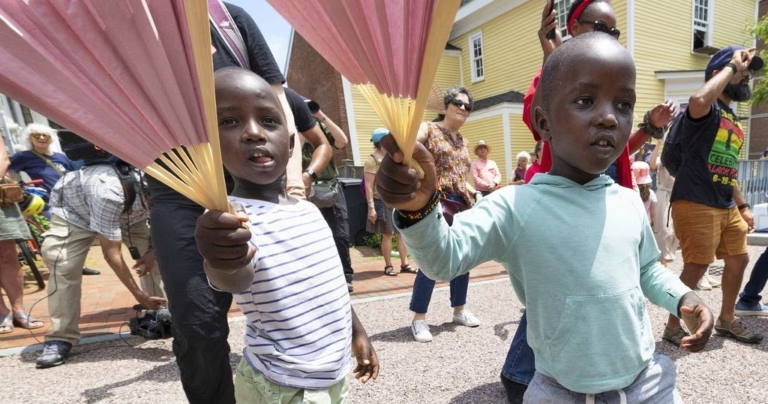
“No, no, no!” shout the girls as they strike a cushion. They are practicing fighting techniques. These are not members of a martial arts club but Maasai girls residing at a boarding school in Transmara, Kenya. This school functions not only as a rescue center for teens who have escaped early marriage and Female Genital Mutilation (FGM) but also as an educational institution.
14-year-old Grace Musheni has been living and studying at the Enkakenya Centre for Excellence since 2023. She explains, “We learn how to protect ourselves, how to protect our bodies, and even educate our parents.” Established in 2009, the center does not only serve as a safe haven for girls at risk of early marriage but also offers free high school education. This is aimed at encouraging parents to keep their daughters in school rather than subjecting them to FGM – a practice prevalent among Maasai girls aged 8-17, depending on the location of their birth-year.
Once a girl undergoes FGM, she is considered an adult and eligible for marriage, abruptly ending her childhood and education. Despite Kenyan law prohibiting FGM and marriage under the age of 18, these practices continue, particularly in rural areas with low education levels. According to the 2022 Kenya Demographic and Health Survey, 56.3% of women without education have undergone FGM, compared to only 5.9% of women with more than secondary education.
Education for girls also has an impact on gender-based violence. According to a survey, 34% of all Kenyan women have been victims, a figure which decreases to 23% for women with more than secondary education. Therefore, in addition to providing education, the Enkakenya Centre partners with I’m Worth Defending (IWD) to teach combative self-defense techniques to all students.
The aim is not only to equip them to physically fight off potential abusers but to instill assertiveness in all areas of their lives. As Amelia Awuor from IWD explains, “We train them with basic principles of assertiveness and boundary setting, which includes verbal and physical techniques. These skills instill confidence to speak up against violations or fight off physical threats.”
The self-defense classes also provide protection against sexual abuse, which can result in girls being trapped in violent marriages. “A man can defile you, but the parents say the easier way is for you to go to that man and become his wife. And then they take back the cows (as bride price),” explains Musheni.
15-year-old Purity Risanoi has been at the school for five years. Her mother, a widow, farmed to raise her five children alone, but cultural pressures from their community persist. “My parents still engage in traditional cultural practices which puts me at risk of being subjected to practices like early marriage and FGM. But now that I am equipped with these skills, I understand the risks and I can stand up for myself and defend myself,” she says. Her long-term goal is to study and become a lawyer. Grace Musheni, on the other hand, aspires to be a software engineer. She hopes to return to her community and use technology to uplift it.
14-year-old Grace Musheni has been living and studying at the Enkakenya Centre for Excellence since 2023. She explains, “We learn how to protect ourselves, how to protect our bodies, and even educate our parents.” Established in 2009, the center does not only serve as a safe haven for girls at risk of early marriage but also offers free high school education. This is aimed at encouraging parents to keep their daughters in school rather than subjecting them to FGM – a practice prevalent among Maasai girls aged 8-17, depending on the location of their birth-year.
Once a girl undergoes FGM, she is considered an adult and eligible for marriage, abruptly ending her childhood and education. Despite Kenyan law prohibiting FGM and marriage under the age of 18, these practices continue, particularly in rural areas with low education levels. According to the 2022 Kenya Demographic and Health Survey, 56.3% of women without education have undergone FGM, compared to only 5.9% of women with more than secondary education.
Education for girls also has an impact on gender-based violence. According to a survey, 34% of all Kenyan women have been victims, a figure which decreases to 23% for women with more than secondary education. Therefore, in addition to providing education, the Enkakenya Centre partners with I’m Worth Defending (IWD) to teach combative self-defense techniques to all students.
The aim is not only to equip them to physically fight off potential abusers but to instill assertiveness in all areas of their lives. As Amelia Awuor from IWD explains, “We train them with basic principles of assertiveness and boundary setting, which includes verbal and physical techniques. These skills instill confidence to speak up against violations or fight off physical threats.”
The self-defense classes also provide protection against sexual abuse, which can result in girls being trapped in violent marriages. “A man can defile you, but the parents say the easier way is for you to go to that man and become his wife. And then they take back the cows (as bride price),” explains Musheni.
15-year-old Purity Risanoi has been at the school for five years. Her mother, a widow, farmed to raise her five children alone, but cultural pressures from their community persist. “My parents still engage in traditional cultural practices which puts me at risk of being subjected to practices like early marriage and FGM. But now that I am equipped with these skills, I understand the risks and I can stand up for myself and defend myself,” she says. Her long-term goal is to study and become a lawyer. Grace Musheni, on the other hand, aspires to be a software engineer. She hopes to return to her community and use technology to uplift it.
Source: http://www.africanews.com/2025/03/08/maasai-girls-learn-self-defence-to-fight-gender-based-violence/







